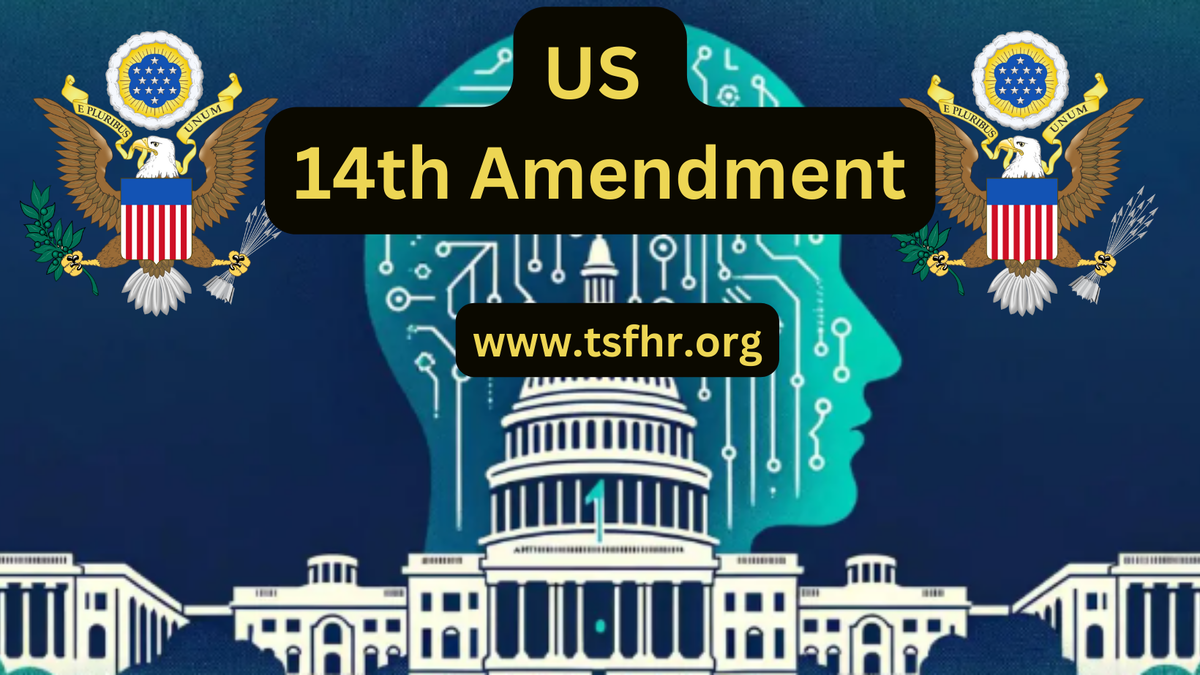What is the 14th Amendment in Simple Terms : (14th Amendment, 14th amendment, 14th amendment simplified, 14th amendment rights, equal protection under the law) Discover what the 14th Amendment means in simple terms. Explore its creation, importance, and how it guarantees citizenship and equal protection under the law in this easy-to-understand guide.
Introduction:
The 14th Amendment is one of the most significant amendments in U.S. history. Ratified in 1868, it fundamentally reshaped how citizenship and rights were understood in the United States. This article will explain the 14th Amendment in simple terms, including its creation, purpose, importance, and modern-day examples. Whether you’re studying U.S. history or just curious about the amendment’s impact, this guide will clarify its essential role in protecting individual rights.
What is the 14th Amendment in Simple Terms:
What is the 14th Amendment in Simple Terms?
- The 14th Amendment granted citizenship to anyone born in the U.S., including former slaves, and ensured that all citizens would have equal protection under the law.
- It is best known for its provisions on “due process” and “equal protection,” which ensure that the government treats all citizens fairly and does not discriminate against them.
- It also states that no state can deny any person within its jurisdiction equal protection of the laws.
When Was the 14th Amendment Created?
- The 14th Amendment was created and ratified on July 9, 1868, during the Reconstruction Era, following the Civil War.
- It was primarily designed to address issues related to former slaves and their rights as free citizens after the abolition of slavery by the 13th Amendment.
Why Was the 14th Amendment Created?
- The 14th Amendment was created to secure the civil rights of former slaves, ensuring they were granted citizenship and protections under the law.
- It also aimed to strengthen the rights of all U.S. citizens by ensuring equal protection and fair treatment from the government, including the states.
- It was a response to the Black Codes and other discriminatory laws enacted in the South after the Civil War, which sought to limit the rights of African Americans.
Why is the 14th Amendment Important?
- The 14th Amendment is vital because it established the principle of “birthright citizenship,” meaning anyone born in the U.S. is a citizen, regardless of their parents’ status.
- It also guarantees that no person will be denied “due process” or “equal protection,” which has been foundational for advancing civil rights in the U.S.
- Landmark Supreme Court decisions, such as Brown v. Board of Education and Roe v. Wade, have relied on the 14th Amendment to secure rights and protections for various groups.
What Are 14th Amendment Rights?
- The 14th Amendment provides several key rights:
- Citizenship: Anyone born or naturalized in the U.S. is a citizen.
- Due Process: Protection from unfair treatment by the government, ensuring fair legal proceedings.
- Equal Protection: Guarantees that all people, regardless of race or background, are treated equally by the government.
- These rights have had a lasting impact on civil rights and equal treatment for all citizens.
14th Amendment Examples in Action
- Birthright Citizenship: Anyone born on U.S. soil, including children of immigrants, automatically gains citizenship.
- Civil Rights Movements: The 14th Amendment played a central role in desegregation efforts, including the landmark case Brown v. Board of Education, which declared racial segregation in public schools unconstitutional.
- Same-Sex Marriage: The 14th Amendment’s equal protection clause was key in the Supreme Court’s decision to legalize same-sex marriage in Obergefell v. Hodges.
Examples of the 14th Amendment Being Violated
- Discriminatory Laws: In the past, states used laws to disenfranchise African Americans, such as poll taxes and literacy tests, which violated the 14th Amendment’s guarantee of equal protection.
- Immigration Restrictions: In some cases, laws that disproportionately targeted certain immigrant groups were seen as violating the spirit of equal protection under the 14th Amendment, though these cases often led to court challenges and reforms.
FAQs Section:
Q1: What is the 14th Amendment in Simple Terms for Kids?
The 14th Amendment says that anyone born in the U.S. is a citizen and deserves equal treatment from the government. It makes sure that no one is treated unfairly because of who they are.
Q2: What Does the 14th Amendment Say in Simple Words?
It says that anyone born in the U.S. is a citizen, and everyone is entitled to fair treatment by the government. No one should be treated unfairly or discriminated against by the laws.
Q3: Why Was the 14th Amendment Created?
The 14th Amendment was created after the Civil War to ensure that former slaves and all citizens were treated fairly and had the same rights, including citizenship and equal protection under the law.
Q4: What is the 14th Amendment of the Bill of Rights in Simple Terms?
While the 14th Amendment is not technically part of the Bill of Rights, it guarantees essential rights such as citizenship, due process, and equal protection under the law for all citizens.
Q5: What Are Some 14th Amendment Examples?
The amendment guarantees birthright citizenship.
It played a key role in desegregation and civil rights movements, like Brown v. Board of Education.
The legal protection of same-sex marriage in Obergefell v. Hodges also relied on the 14th Amendment.
Conclusion:
The 14th Amendment is a cornerstone of American civil rights, ensuring that all people are treated equally under the law. By granting citizenship to those born in the U.S. and guaranteeing due process and equal protection, it has shaped the rights of individuals and provided a foundation for many important legal battles. Understanding the 14th Amendment is crucial in recognizing the ongoing importance of equality, justice, and fairness in the U.S.
Other Amendments Articles
